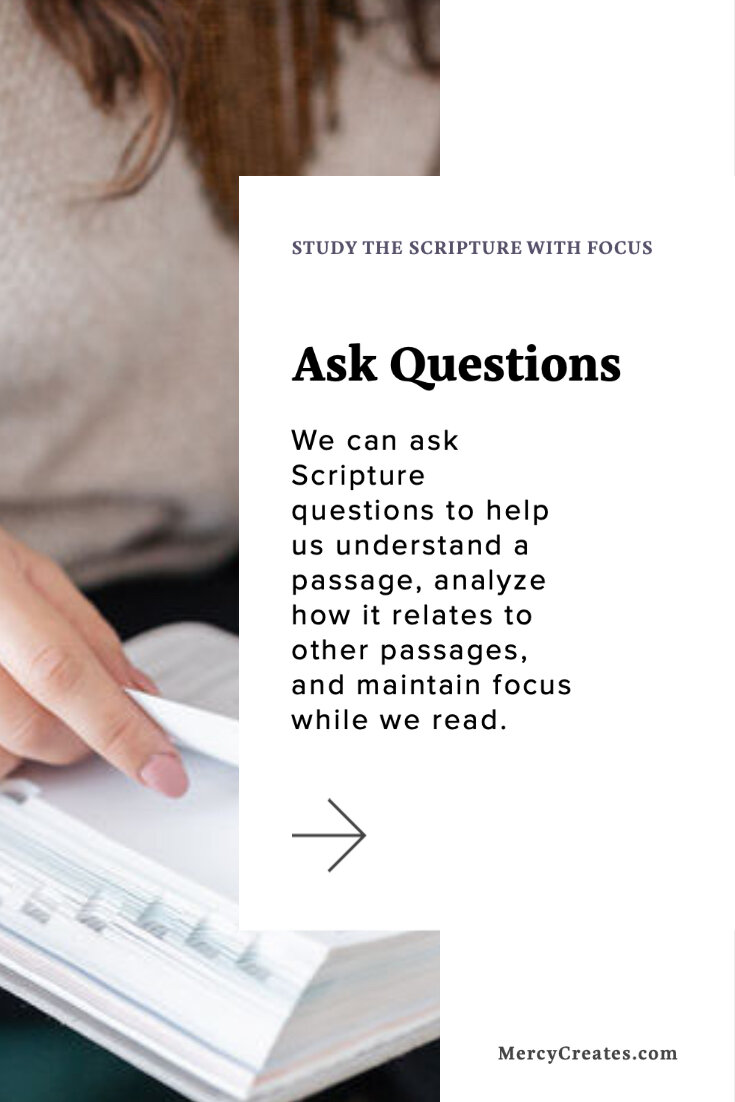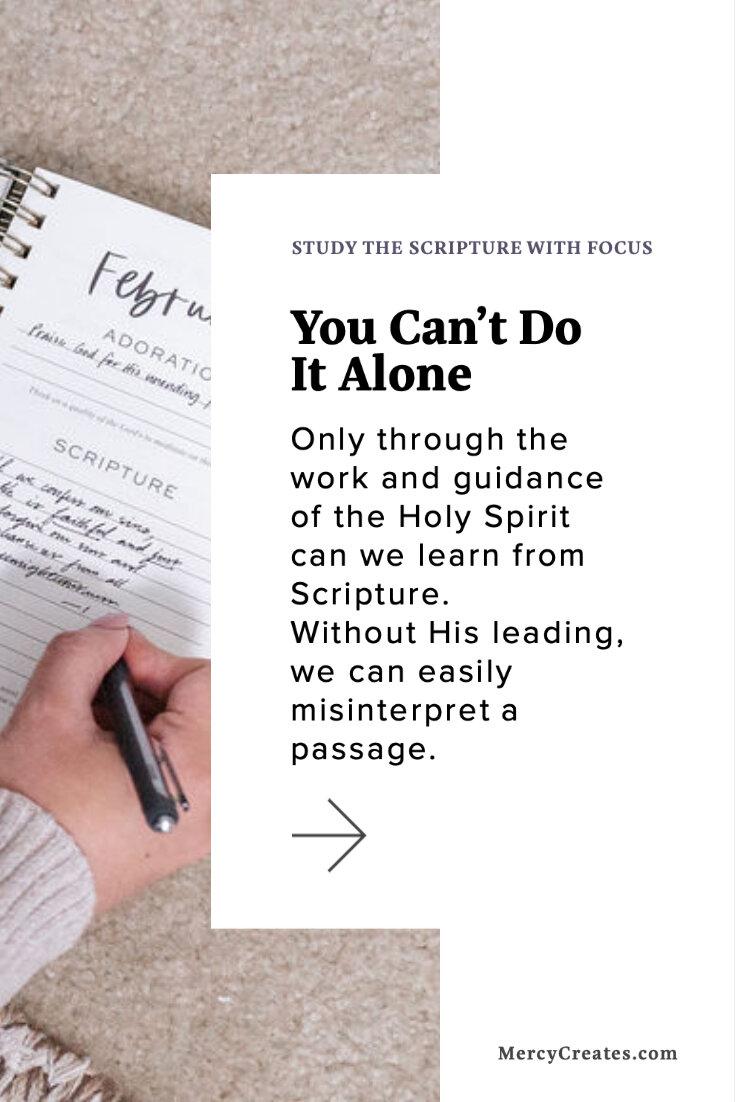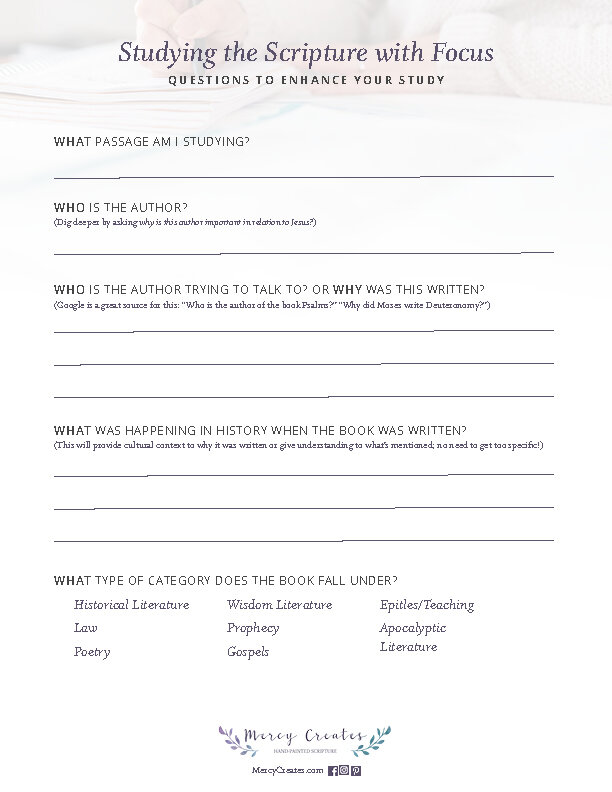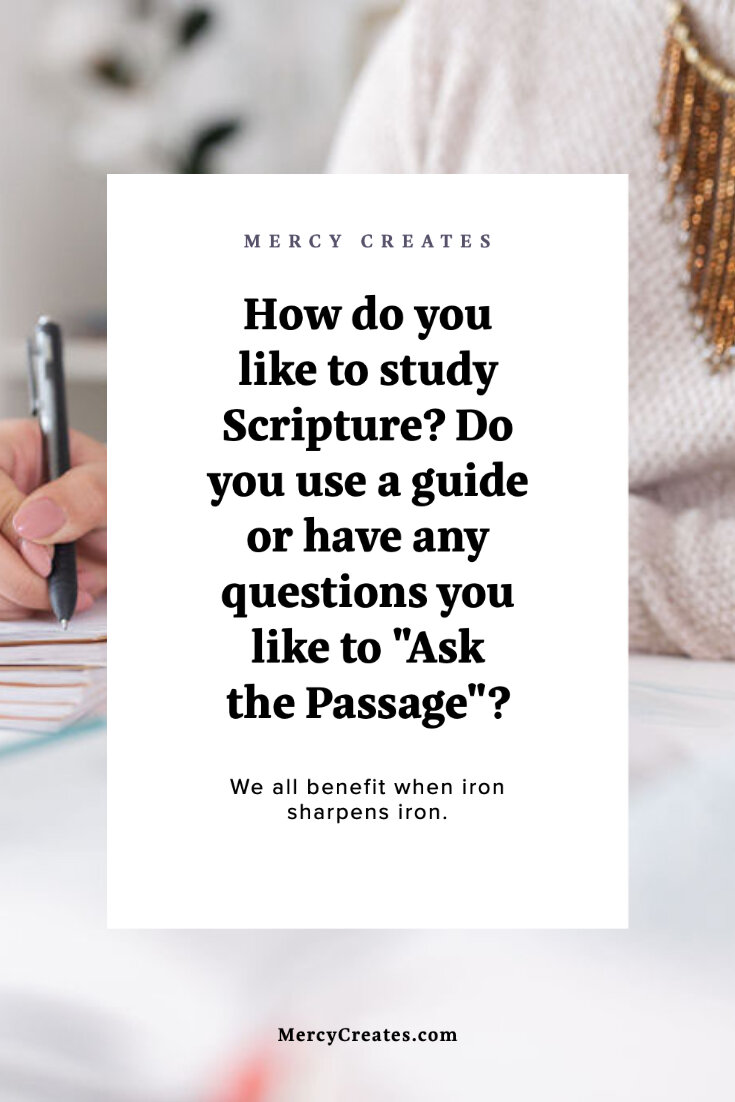Do you like putting puzzles together?
Imagine you found two pieces of a puzzle that fit perfectly—immediately after you dumped them onto the table. You celebrate this win… and then intimidation sets in: there are 998 more pieces to go before you see that sunrise over the mountains and the cardinals sitting on a tree branch.
When studying Scripture, and we only have two connected pieces of a puzzle, it can feel confusing, disjointed, and intimidating. We know there’s a “Bigger Picture” to the Bible, but how does it all fit?
Or we don’t even have two connected pieces! We’re staring at all the “flipped over” sides and think “Where do I even start?” (Which is always me, and why I don’t do any kind of puzzle to begin with.)
It can be hard to figure out “the point” of the passage. And it can be just as hard to stay focused when reading. There’s a genuine desire for the Word, but understanding (or attention) can be lacking.
Personally, I know I need structure and guidance. Otherwise, my mind will wander, and I’ll think: “Did I actually read anything in these three minutes?” I need to have that “Finished puzzle picture” in front of me at all times to lead me in how all the pieces fit.
The same can be applied to studying Scripture—we can ask questions to help us understand a passage, analyze how it relates to other “pieces,” and maintain focus while we read.
Don’t do it Alone
It’s important to state that you can’t understand Scripture on your own, and you can’t do it with only research, teachers, or sermons—only through the work and guidance of the Holy Spirit can we learn from Scripture.
It’s tempting to just start and read and do, but without His guidance, we can misinterpret a passage. There are serious consequences for those who misinterpret His words and speak it as truth (James 3:1). It’s with utmost importance that we beg the Spirit to teach us, and we read resources (even this blog post) with discernment (2 Timothy 4:3–4). God will always provide for us, so if we ask Him to teach us, He’ll teach us (John 14:26).
Before you start, pray. Here is a sample prayer:
Dear God,
Thank You for giving me Your Words. Thank You for constantly and consistently reaching out to me, teaching me, loving me, and caring for me.
Give Me Your wisdom and discernment as I read. Give me understanding and hope. Help me be attentive to what You want to teach me.
Keep my spirit humble before You, and remind me of Your goodness and grace.
Help me remember Your Words today, tomorrow, and bring someone into my life that I can share them with.
Amen.
What to Ask Scripture
These study questions are simple in nature, but so important in aiding our studies and focus. As we answer these study questions, the context of a passage becomes clearer, and when the context of a passage becomes clearer, we understand more about why the book was written. When we understand the purpose of the book, we can see how it relates to others as a whole, and ultimately, we can understand more about the Author that wrote it.
Context helps us understand purpose. Purpose helps us understand overarching theme. The overarching theme helps us understand God, the Author.
Questions to ask when reading a passage:
-
Who is the author?
-
What was happening in history when the book was written?
-
What word(s) stand out to me?
-
Who is the author trying to talk to? Or why was this written?
-
What seems to be the main focus or subject?
-
What does this passage reveal to me about God? Myself? My relationships?
I’m sure you can agree with me: they’re not difficult questions. However, it can take time to research and find an answer—Google is such a great resource for this (But be mindful of the website you’re reading. Check out 2–3 other web pages on the subject to see if they corroborate.).
If you’re just starting to study the Bible (First off, HOORAY! Second, check out this blog post on techniques to help you cultivate that habit), I would start with two or three questions, then add another question to your studies each week.
When you’re going through a book of the Bible, answer some of the questions before you start reading the particular passage or book (“Who is the author?” and “What was happening in history?”), and keep those answers visible as you continue through your studies.
Help your brain and have the answers to the study questions on a sheet of paper next to your Bible. As you think through the passage, some ideas will jump out at you (Thanks, Holy Spirit!), and it’s best to write them down immediately—studies have shown that we retain information better when we write it down. You can always go back, erase, and refine your thoughts—just get those reflections written down!
Free Study Guide
Here’s a unique 3-page study guide that you can help you study with focus. It contains the sample questions and more that will deepen your study of Scripture.
If you downloaded the study guide, please let me know, and how it helped you! Send me an email with your experience when using the guide.
Also, how do you like to study Scripture? Do you use a guide or have any questions you like to “Ask the Passage”?






Leave a Comment +